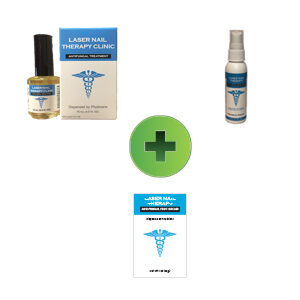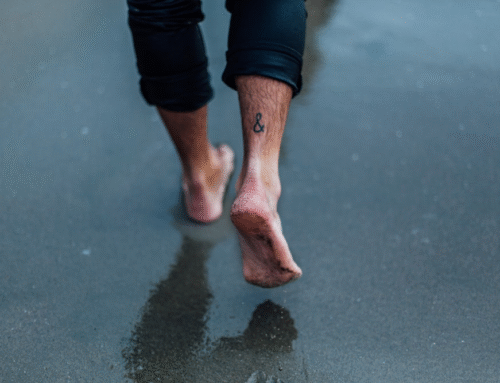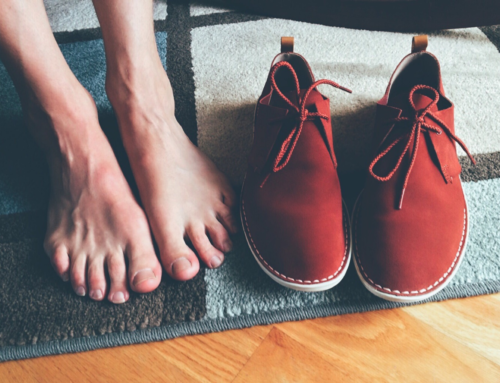This post will go over what it means to have toenail fungus during pregnancy. We will also go over the signs of toenail fungus and the best treatment options. It is important not to scare yourself and stay calm during this process. Doing a simple Google search with your symptoms can sometimes be extremely scary.
If you are pregnant and have nail fungus, treatment can begin during your pregnancy. However, it is important to pick the best treatment method so as not to harm you or the baby.
How to know if you have toenail fungus?
Check for the following symptoms:
- discoloration of the nail (yellow/brown)
- hard and thick nail
- brittle, white nail
- the cheese-like smell coming from the nail
- detachment of the nail from the nail bed
Pregnancy and Toenail Fungus Concerns
During pregnancy, your immune system naturally weakens to help your body accept and support the baby. While this is a healthy and normal change, it can make you more vulnerable to infections like toenail fungus. Hormonal shifts and fluid retention may also increase your risk by causing your feet to swell, making shoes tighter, and creating a warm, moist environment where fungus thrives. For this reason, it’s important to keep your feet clean, dry, and in breathable footwear to lower your chances of fungal infections spreading or worsening.
Safe Management During Pregnancy
Expectant mothers often worry about whether toenail fungus can affect their baby. The good news is that nail fungus itself does not harm your pregnancy or your baby. The main concern is choosing a safe treatment option. Since some medications carry risks, consulting with a healthcare professional is essential before starting any treatment. Many pregnant women find that temporary symptom management—such as trimming nails carefully, avoiding nail polish, and practicing good foot hygiene—combined with safe professional treatment like laser therapy, provides peace of mind until the infection is resolved.
Interesting Facts about Toenail Fungus
- Children and pregnant women are more susceptible to developing an ingrown nail than men.
- Our nails grow faster in the summertime than in any other season.
- Our middle finger grows the fastest of any other nail.
- Our fingernails grow twice as fast as our toenails (that explains why we need to get manicures more often than pedicures!)
- Our nails grow far more slowly as we age.
- Trauma to the nail can result in a nail fungal infection.
- The fingernails on fingers that you favor grow faster.
- Wearing tight shoes/socks can cause an ingrown nail.
- Biting your nails can not only cause a nail fungus but can also cause an ingrown nail. Moreover, biting your nails can also make you physically ill due to the bacteria under the nails that you are ingesting.
- If your nails grow too fast or too slow, this can cause an ingrown nail as well.
Treatment option 1: Topical medication
Topical medication can only go on top of the nail; it is not injected into the bloodstream. This treatment is deemed safe to use by pregnant women. The downside to topical medication for toenail fungus during pregnancy is that it offers a very low success rate. It typically shows less than a 5% success rate. It takes a lot of time to show any results. Most common topical medications include creams, sprays, and antifungal solutions. Since the treatment is not very effective in curing nail fungus, our nail doctors recommend using topical medication as a preventative treatment. Normally, it is bundled with another type of treatment and used to prevent reinfection.

Treatment option 2:Oral Antifungal Medication
Oral antifungals are only FDA-approved for use during pregnancy. These results are not based on human studies. With this, they are the only category B approved by the FDA for nail fungus treatment for women who are pregnant. Pregnant or not, Oral antifungal medications put you at risk of liver damage. When taking these pills, you are recommended to have regular blood tests to check for liver toxicity. Since all the risks associated with taking oral medication are not clear, we typically do not recommend this treatment option during pregnancy.

Laser Treatment: safest and most effective
Laser treatment for toenail fungus provides the best success rate for people with laser nail fungus. This treatment is safe not only for children and the elderly but also for women during pregnancy. At Laser Nail Therapy, we use the PinPointe Foot Laser, which has a cure rate of 85%. This is the highest compared to all other treatment options for toenail fungus. Since the laser is a heat source that is applied to the top of the nail, it eradicates the fungal spores within and under the nail. Laser Treatment for toenail fungus does not have any side effects. Though the heat might give off a tingly feeling during the treatment, it is safe for pregnant women. Call us today to schedule a free consultation with our foot doctor in Austin, TX.





